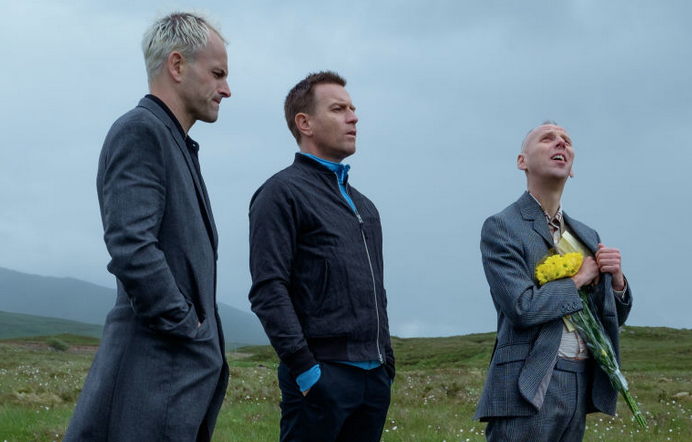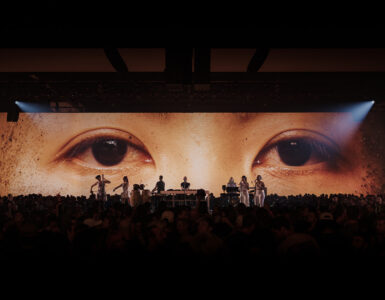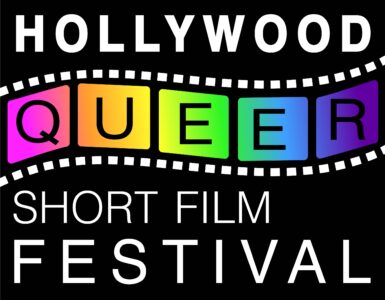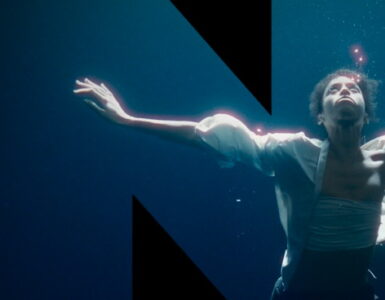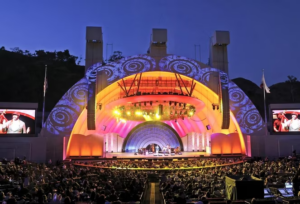This year’s SXSW secret screening, held on Sunday, March 12 at the Alamo Ritz, was T2 Trainspotting, the long-awaited sequel to director Danny Boyle’s 1996 cult classic. Making the evening even more exciting was a special appearance by Boyle and star Ewan McGregor, who participated in a post-screening Q&A, moderated by Austin’s own Richard Linklater.
For T2, screenwriter John Hodge drew from Irvine Welsh’s original novel long with its 2002 sequel, Porno. Twenty years have passed since Renton stole the gang’s money and left the country. Begbie (Robert Carlyle, ferocious as ever) is in prison, and Spud (Ewen Bremner) is unable to shake a decades-long smack habit. Sick Boy (Jonny Lee Miller) has built a good business by blackmailing prominent gentlemen.
Renton is clean, despite having spent the last 20 years in Amsterdam, and he returns to an Edinburgh he barely recognizes in order to make things right with his old friends. Of course, since we’re in Trainspotting territory, everything goes lopsided in short order.
Boyle’s new film will certainly satisfy devotees of the original. It’s got the same cheeky attitude, a soundtrack you can dance to, fast cutting and satirical jabs at all that is sacred. Renton even reprises his “Choose Life” monologue, updated for the social media generation.
T2 Trainspotting also has an undercurrent of melancholy. The director reminds us that these men are all 20 years older, and their youthful hopes have fall but disintegrated. It is in these moments the film becomes its most poignant. By incorporating ever-so-brief glimpses from the original, Boyle contrasts the old and the new to remind us that time waits for no one, even these — dare I say beloved? — characters.
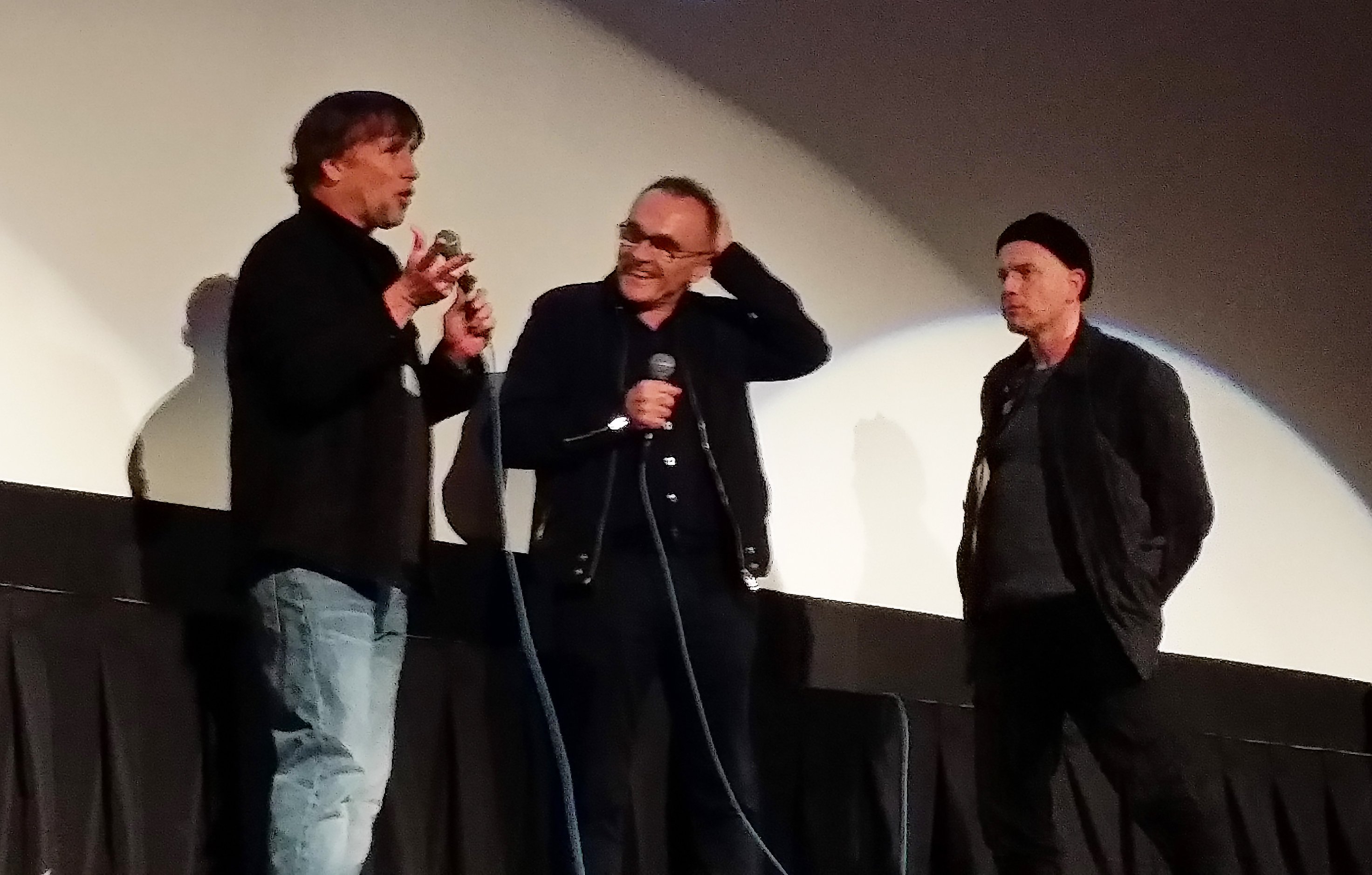
After the screening, Boyle and McGregor took to the stage to discuss the film with Boyhood director Richard Linklater. Here is an excerpt of their discussion:
Linklater: How much did it scare you [to take on the sequel to Trainspotting]? How much pressure were you under?
Boyle: We had this expression. Sometimes it would be said out loud, and sometimes it would be unspoken in people’s eyes as they look at you, and the expression was, “This better not be shite.” We all knew the audience would crucify us because of their relationship with the original film.
McGregor: That screening [of the original film] in New York…that was amazing. I remember there was this guy hanging around the back. He said, “I’ve already seen it. It’s really good, man.” And that was Spike Lee.
Linklater: I knew we were in for a treat with the opening image — a treadmill. It just says so much right there.
Boyle: A lot of the film is about how badly men age. Women get all the flak about aging, but women age much more sensibly. Men hold on to things for so long…hopelessly.
McGregor: The interesting thing is that if we had done [the sequel] ten years ago, it would’ve been too soon. It wouldn’t say the things this film says, which is more about something that’s started to happen to me. I know it’s happening to Danny and John. I don’t know if it’s specific to men — I can only speak on that. It’s a certain looking back on your life and wondering, “What’s next? What’s to come?” There’s a certain nostalgia that wouldn’t have been relevant to those characters ten years ago.
Linklater: I consider this film very positive and optimistic, even with as much shit as everyone’s going through. It’s pretty amazing that you’re all still alive, that you survived the ‘90s, considering how we saw you last. Did it all come back [when you began shooting]?
McGregor: Like it was still there! 20 years is a long time, and it’s testament to the first movie, a testament to the writing and Danny’s direction. Danny, you’ve talked about how memorable these characters are. I mean, how many movie character names do you remember? Not many, but these you do. Spud and Sick Boy and Begbie — unforgettable.
And there’s something about playing these characters [again] that made me nervous. I arrived a week after filming started. When I arrived, I met Ewen [Bremner] in the lunch queue, and I told him, “Man, I’m shittin’ my pants, Ewen, I’m really scared.” And he said, “Don’t be nervous. You’ll see when you get on set and you’ll just be fuckin’ there!” And the first thing I shot was the fight scene with Sick Boy.
Linklater: That was your first day? Welcome back! I find it interesting how you do a little bit of actual flashback, footage from the original film, and then these kind of beautiful visual flashbacks. I found that very moving, to be at a certain location — the train goes by and you’re all just standing there. That’s such a badass shot. Did you feel you needed that to tell your story or to get into your character’s mindsets? Or did you feel you needed to help the audience along?
Boyle: At first we were terrified to do the film, because you worry you’re going to disappoint people. There was a guy on the tower block — you know, the tower block that Spud falls off in his first scene with Renton? There was another tower block next to it, you know. And all the morning when we were setting up the shot with him on the chair falling off, there was a guy watching us out the window from the other tower block. And he was watching us real aggressive-like, and eventually he shouted out to me, “Danny! This better not be shite!”
You have to forget that fear, because the other film is actually an artifact that you can use, and what we did was we just drew threads from it occasionally, to connect you back. Like proudly, in a way, to show that we weren’t fearful of it, or ignoring it. Initially we had like five minutes [of flashbacks] in one of the cuts, and that was way too much, so now we have about a minute of the original in the whole film. It feels like more, though, because they touch you, I think. I hope they do, anyway.
Linklater: Even when you see a little glimpse, you remember, and it’s all there in your mind.
Boyle: What is amazing about movies is that they are the art form of time. What you do with movies is you just extend time or you contract it. You can also stop it, and unlock it as well. And it’s a weird sort of union you have with the audience, because once cinema continues to exist, you also participate in time. You pay to give up time to a filmmaker and say, “There, there’s my time. What are you going to do with it? I’m not going to walk away. I’m not going to look at my phone (hopefully).”
Anyway, that contract of time…there’s nothing like it. In the first movie, we stopped time for cool, stylish reasons, and we had some freeze frames with some names and stuff like that. In [the sequel], we used it not to copy that but to say that the film is about time. There’s a contract in it as well, which I expressed to the actors before we started: “We are going to see you as you were.”
And you can unlock time, because you have an image of these actors, especially in movies that you’ve loved. You freeze them in time. Even though they make other movies, you have an image of them in that particular film. If you go back to that movie and unlock it and go, “Oh, no. Here he is now!” What do you think noo?
T2 Trainspotting opens March 17 in theaters nationwide.


